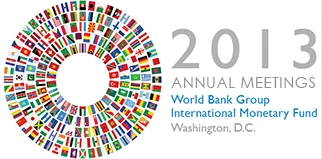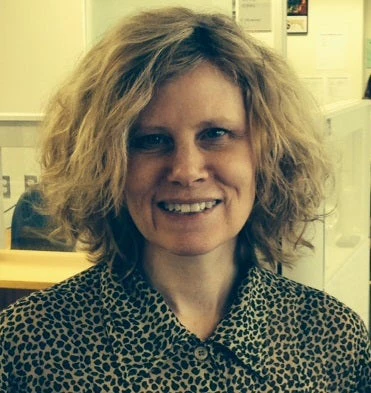World Bank Group President Jim Yong Kim delivered two startling facts at his Annual Meetings press briefing today: 400 million of the world’s extreme poor are children; and in 35 low-income countries, 100 million more people are living in extreme poverty — defined as less than $1.25 a day — than 30 years ago.
Both statistics are from a new report, the State of the World’s Poor, and they reveal that critical challenges remain despite historic growth and poverty reduction in developing countries in recent decades. “How can we in good conscience not do all we can to lift these children and their families out of extreme poverty?” asked Kim. “They can’t wait for progress to emerge slowly. They need our help today.”

The rise of the middle class in Latin America and the Caribbean was the focus of a discussion co-sponsored by the global Spanish newspaper, El País. Once considered the most unequal part of the world, the region now has more people in the middle class – 32% – than in poverty. But unequal access to quality health, education, and other services has driven protests in the streets. A panel including Colombia Finance Minister Mauricio Cárdenas, Uruguay Finance Minister Fernando Lorenzo, Latinobarometro Executive Director Marta Lagos, and Nancy Birdsall, president, Center for Global Development, debated the issues – including the very definition of “middle class.” Replay the webcast.
The global economy will need to create 5 million jobs each month during the next decade to meet the demands of more than 1 billion new entrants to the labor market. So how can young people compete? Boosting Shared Prosperity by Getting to Youth Employment Solutions (YES) looked at how coalitions and public-private partnerships can help. A panel including Tunisia Minister of Development and International Cooperation Lamine Doghri, Sida Director General Charlotte Petri Gornitzka, and representatives from Accenture and Hilton Worldwide discussed topics including mentoring young entrepreneurs, the digital economy, e-learning, and programs for disadvantaged young people. Replay the webcast.
How can data help achieve international development goals? A panel including South African Finance Minister Pravin Gordhan, World Bank Chief Economist Kaushik Basu, UN Global Pulse Director Robert Kirkpatrick, and Homi Kharas, lead author of “A New Global Partnership: Eradicate Poverty and Transform Economies through Sustainable Development,” discussed how the World Bank, UN, and multinational development banks can best support a data revolution. Replay the Post-2015 Global Development Framework webcast.
Of Note
Better Quality Investments needed in the Middle East and North Africa Region to Boost Shared Growth
Ongoing political turmoil in 2013 has weighed down economic activity in the Middle East and North Africa. The World Bank Group’s latest Economic Developments and Prospects report projects the region’s economic growth in 2013 to average 2.8%, half the estimated 5.6% in 2012.
IFC Launches $1 Billion Bond Program to Strengthen India’s Capital Markets, Attract Foreign Investment
IFC, a member of the World Bank Group, has launched a $1 billion offshore bond program — the largest of its kind in the offshore rupee market — to strengthen India’s capital markets and attract greater foreign investment in a time of renewed economic uncertainty across the world.
Two Goals: End Extreme Poverty, Boost Shared Prosperity. The Private Sector's Role
IFC released this ebook on Wednesday.
Watch Friday, Oct. 11
A Conversation with Malala Yousafzai, 1-2 p.m. ET
Follow on Twitter with #IDG2013 or #askMalala
Follow on Twitter with #wblive:
2013 Annual Meetings Plenary, 9-11 a.m. ET
Blessing or Curse: Making Earth's Riches Work for Poor and Fragile Countries, 11 a.m.-12:30 p.m. ET
Transition to Open Government in the Arab World, 11 a.m.-12:30 p.m. ET
Igniting Innovation in Financial Access, 2-3:30 p.m. ET
What Will It Take to Achieve Both Healthy Children and Healthy Economies, 2:30-4 p.m. ET



Join the Conversation